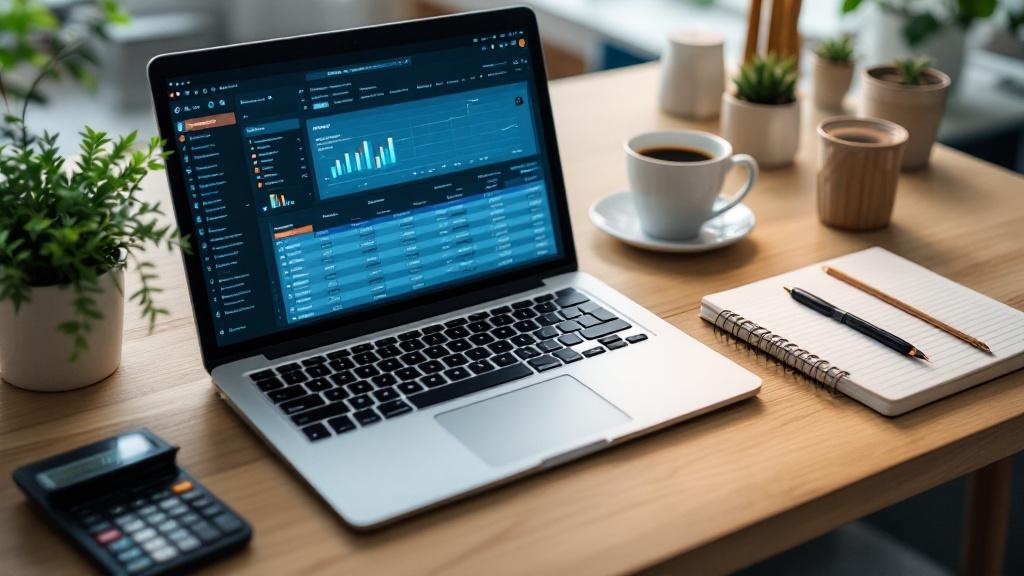Learn essential budgeting tips for freelancers to manage unstable income, improve financial stability, and ensure long-term success. Discover practical freelance budgeting strategies, tax tips, and money management tools.
Freelancing offers flexibility, autonomy, and the freedom to pursue your passions, but it also comes with its own set of challenges, especially when it comes to managing finances. As a freelancer, your income can fluctuate month-to-month, and without a steady paycheck, it can be difficult to know how to budget, save, and plan for the future.
This comprehensive guide will walk you through proven budgeting tips for freelancers that can help you manage unpredictable income, save for taxes, and achieve long-term financial stability. From freelance budgeting strategies to tax tips, we’ve got you covered. Let’s dive in!
Why Budgeting Is Crucial for Freelancers
As a freelancer, you may not have a traditional, predictable income stream like someone with a salaried job. One month could bring in a windfall, while the next might be much leaner. Managing this variability requires careful budgeting and proactive planning.
Freelancers often have to juggle multiple clients, projects, and deadlines, making it easy to forget about the financial side of things. But here’s the truth: if you don’t budget properly, it’s easy to find yourself caught off guard when bills or taxes are due.
Proper budgeting will help you:
-
Manage inconsistent income and avoid financial stress
-
Save for taxes, as freelancers are responsible for their own tax payments
-
Plan for the future, ensuring that you have a safety net during lean months
-
Control spending and avoid overspending on personal and business expenses
-
Build financial stability, even when your income isn’t predictable
Freelance Budgeting Strategies: A Step-by-Step Approach
Understanding how to manage your finances is key to thriving as a freelancer. Let’s break down some crucial freelance budgeting strategies to keep your finances in check.
1. Track Your Income and Expenses
The first step to creating a budget is tracking all your income and expenses. Use a simple spreadsheet or a budgeting app to monitor incoming payments and outgoing costs.
Freelance Expense Categories:
-
Client payments: Keep track of your invoices and the payments you’ve received.
-
Business expenses: Include software subscriptions, office supplies, and any tools you need for your work.
-
Personal expenses: Rent, utilities, groceries, and other day-to-day living costs.
By categorizing your income and expenses, you’ll get a clearer picture of where your money is going each month.
2. Build an Emergency Fund
When your income varies, having an emergency fund is crucial for financial peace of mind. Ideally, you should save 3-6 months’ worth of living expenses to cover any unexpected financial gaps.
This fund can act as a cushion when work slows down or if clients delay payments. A healthy emergency fund will help you stay afloat during lean months without resorting to high-interest loans or credit cards.
3. Set Aside Money for Taxes
Unlike salaried employees, freelancers are responsible for paying their own taxes. This means you need to set aside a portion of your income for tax purposes to avoid any last-minute panic when tax season arrives.
Freelance Tax Tips:
-
Estimate your taxes: Use tax calculators or consult an accountant to estimate how much you should set aside.
-
Save 25-30% of your income for taxes, depending on your tax bracket.
-
Consider quarterly tax payments to avoid a large lump sum at the end of the year.
-
Track tax deductions: As a freelancer, you may be eligible for tax deductions like home office expenses, software costs, and travel.
A solid tax strategy will ensure you’re not caught off guard when filing your taxes.
4. Create a Budget with a Variable Income
Freelancers don’t have a fixed monthly income, so it’s important to create a budget that accommodates this fluctuation. Here’s how to do it:
Steps to Budget for Unstable Income:
-
Base your budget on your average monthly income over the last 6-12 months. If your income fluctuates wildly, it’s better to use the lower end of your average to ensure you can meet essential expenses.
-
Prioritize essential expenses (rent, utilities, food) over discretionary spending (eating out, entertainment).
-
Build in savings: Try to allocate a percentage of your income to savings, even if it’s small. Aim for at least 10-20% of your income each month.
-
Adjust your budget as needed: If you have a month where you make more than expected, increase your savings or set money aside for leaner months.
5. Use Budgeting Apps for Freelancers
Budgeting apps are a great way to keep track of your finances on the go. These apps can help you categorize expenses, track your income, and even set up automatic savings.
Recommended Budgeting Apps for Freelancers:
-
Mint: Easy-to-use budgeting app that links to your bank accounts to track income and expenses automatically.
-
YNAB (You Need a Budget): A highly-rated app designed to help you create a flexible budget and save for financial goals.
-
FreshBooks: Primarily an invoicing tool, but it also includes expense tracking and reports tailored to freelancers.
These apps help simplify money management so you can focus on your work, not your finances.
Managing Finances as a Freelancer: Tips for Long-Term Success
Being disciplined with your budget is one thing, but you’ll need other strategies to maintain a healthy financial life as a freelancer. Let’s take a look at some essential tips for long-term success.
1. Automate Savings
Setting up automatic transfers to your savings account can help you stay disciplined with saving. Even if you can’t set aside much money each month, automating the process ensures that you consistently save a portion of your income.
2. Separate Business and Personal Finances
As a freelancer, it’s easy to mix personal and business expenses, especially if you work from home. However, keeping your finances separate is critical for tax purposes and overall financial clarity.
Consider opening a separate business bank account for freelance payments and expenses. This will make tracking income and deductions much easier, especially when tax season rolls around.
3. Plan for Future Financial Goals
Your freelance income may be unstable, but that doesn’t mean you can’t plan for the future. Whether you’re saving for retirement, buying a home, or investing in your business, long-term financial planning is essential.
Freelance Financial Goals:
-
Retirement savings: Open an IRA (Individual Retirement Account) or a 401(k) for freelancers.
-
Investing: Consider investing in stocks, bonds, or real estate to grow your wealth over time.
-
Education and development: Budget for courses, certifications, or tools that will help improve your freelance skills and increase your earning potential.
Long-term planning ensures that you’re not just surviving month-to-month but building a stable financial future.
Freelance Financial Independence: Achieving Stability
While freelancing offers many rewards, achieving financial independence is a marathon, not a sprint. By maintaining a consistent savings habit, managing your cash flow, and budgeting effectively, you can weather the ups and downs of freelance life.
Financial discipline is key to gaining freedom from financial worry. The more proactive you are in managing your finances, the more in control you’ll feel, regardless of your income’s variability.
FAQs: Budgeting Tips for Freelancers
1. How do I manage inconsistent freelance income?
Start by tracking your income over several months and budgeting based on your average monthly earnings. Prioritize essential expenses and build an emergency fund to handle lean months.
2. What are the best freelance budgeting strategies?
Some of the best strategies include tracking your income, saving for taxes, setting up an emergency fund, and using budgeting apps. These strategies help ensure you’re prepared for financial fluctuations.
3. How can freelancers save for taxes?
Freelancers should save 25-30% of their income for taxes. You can also set up quarterly tax payments to avoid a large tax bill at the end of the year.
4. What are the top budgeting apps for freelancers?
Some great budgeting apps for freelancers are Mint, YNAB (You Need a Budget), and FreshBooks. These apps can help you track income, manage expenses, and save for the future.
5. How do I avoid overspending as a freelancer?
To avoid overspending, focus on essential expenses, automate savings, and regularly review your financial status. Be disciplined in setting aside money for future months and long-term goals.
6. How can I improve my freelance financial stability?
Financial stability comes from creating a solid budget, tracking your expenses, and building an emergency fund. Additionally, diversify your income streams and save consistently for future goals.








Comments (0)